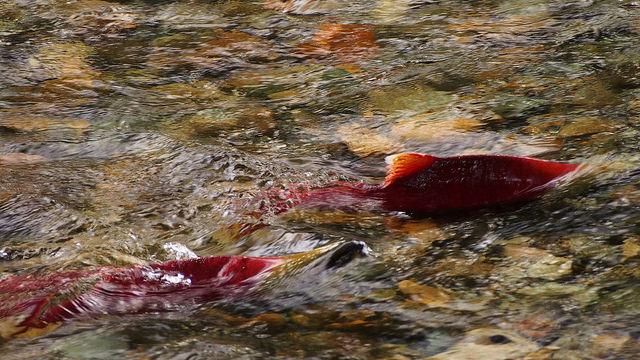Like this article? rabble is reader-supported journalism. Chip in to keep stories like these coming.
In June, the Truth and Reconciliation Commission of Canada released its findings about the more than 120 years of abuse and neglect by the federal government when tens of thousands of Aboriginal children were sent to Indian Residential Schools run by the churches.
After years of testimony and hearings from thousands of residential school survivors, who were taken from their families and communities, robbed of their languages, cultures and traditions, this report concluded that Canada needs to move from “apology to action” if reconciliation with First Nations Peoples is to succeed.
Yet in so many instances where action is called for with respect to Aboriginal Peoples having their rights recognized, the Conservative government chooses to sidestep rights and instead continue the same well-trodden path of neocolonialism.
A case in point: five Nuu-chah-nulth Nations that live on the west coast of Vancouver Island have attempted for over five years to negotiate with Fisheries and Oceans Canada (DFO) to implement their Aboriginal rights to fish and sell fish.
Both the BC Supreme Court (2009) and the BC Court of Appeal (2011) recognized the Aboriginal rights of Nuu-chah-nulth Nations to fish and to sell fish, along with Canada’s infringement of these rights. Dozens of historic documents presented during the trial revealed that these Nations harvested seafood on Vancouver Island’s west coast for both food and economic purposes.
The Supreme Court of Canada denied Canada’s application for leave to appeal the declaration of the Nuu-chah-nulth Nations’ fishing rights in January 2014. The lower Courts gave the five Nations and Canada two-and-a-half years to negotiate fishing opportunities that accommodate Nuu-chah-nulth fishing rights while meeting the legislative and management objectives of DFO.
The Nations are still waiting for meaningful implementation of rights-based fishing opportunities for their communities.
Before Europeans occupied the West Coast, the Nuu-chah-nulth had thriving fishing communities. During the over 100 years of deep racism and colonization of First Nations by Canada’s government, Canadian regulations were at the same time decreasing Nuu-chah-nulth access to seafood resources. Nuu-chah-nulth First Nations became dispossessed of the seafood resources they relied on for food and economic access for thousands of years.
After assuming control of fisheries, Canada built up commercial fisheries utilizing the skills, experience and fisheries of the Nuu-chah-nulth and other coastal First Nations, then, over time made it illegal for Nuu-chah-nulth people to fish by our preferred means and eventually, through regulatory and policy changes, effectively pushed them out of the commercial fisheries.
By removing the ability to benefit economically from our sea resources, Canada took away our independence, our economy, and our ability to sustain our communities. Once thriving, coastal communities became places of poverty and desperation.
One would think that the Court declarations and affirmations of the Aboriginal fishing rights of the five Nuu-chah-nulth First Nations, and the fact that these rights are now protected by Canada’s Constitution would make this issue a priority for the Conservative government. Unfortunately, nothing could be further from the truth.
The goal of the Truth and Reconciliation report is to help repair the relationship between Aboriginal people and the rest of Canada. We know through experience that change won’t happen overnight. There are elders sitting at our negotiating table who are 80 years old and remember having the same discussions with Fisheries and Oceans Canada many years ago. The point is to act now.
The Nuu-chah-nulth Nations returned to Court last spring precisely because Canada has failed over the past five years to negotiate a new fishing regime that recognizes the Aboriginal rights of five Nuu-chah-nulth Nations. The Conservative government is wasting Canadian taxpayers’ money by justifying past and ongoing infringements of Nuu-chah-nulth fishing rights, when what they should be doing is negotiating fair fishing plans in keeping with the Supreme Court decision and embracing this important opportunity to support and re-build First Nations economies and communities.
Candidates running in the upcoming October federal election need to put First Nations issues at the top of their agenda. Canadians should see which candidates in their ridings are doing this and hold them accountable.
It seems to me that feeding one’s family and contributing to the local economy should be pretty high on the list of every Canadian, including Conservatives. It is for me and the Nuu-chah-nulth people. Tell your local candidate it is important to you too.
Ken Watts, Vice-President, Nuu-chah-nulth Tribal Council
Visit the campaign page HERE for more information about the Enough Already campaign for Nuu-chah-nulth fishing rights. Please sign the petition and share with others.
Photo: flickr/ Wilson Hui



